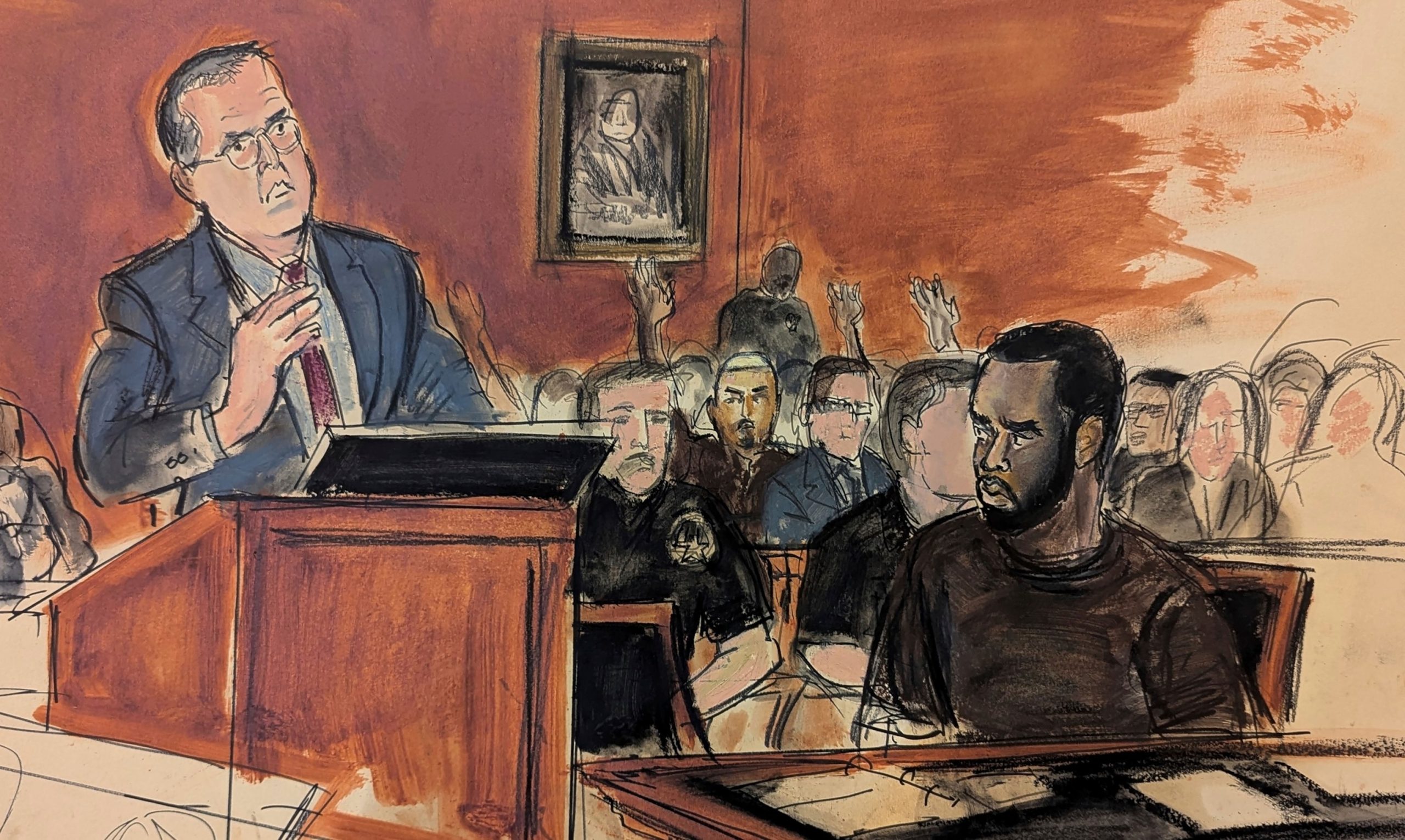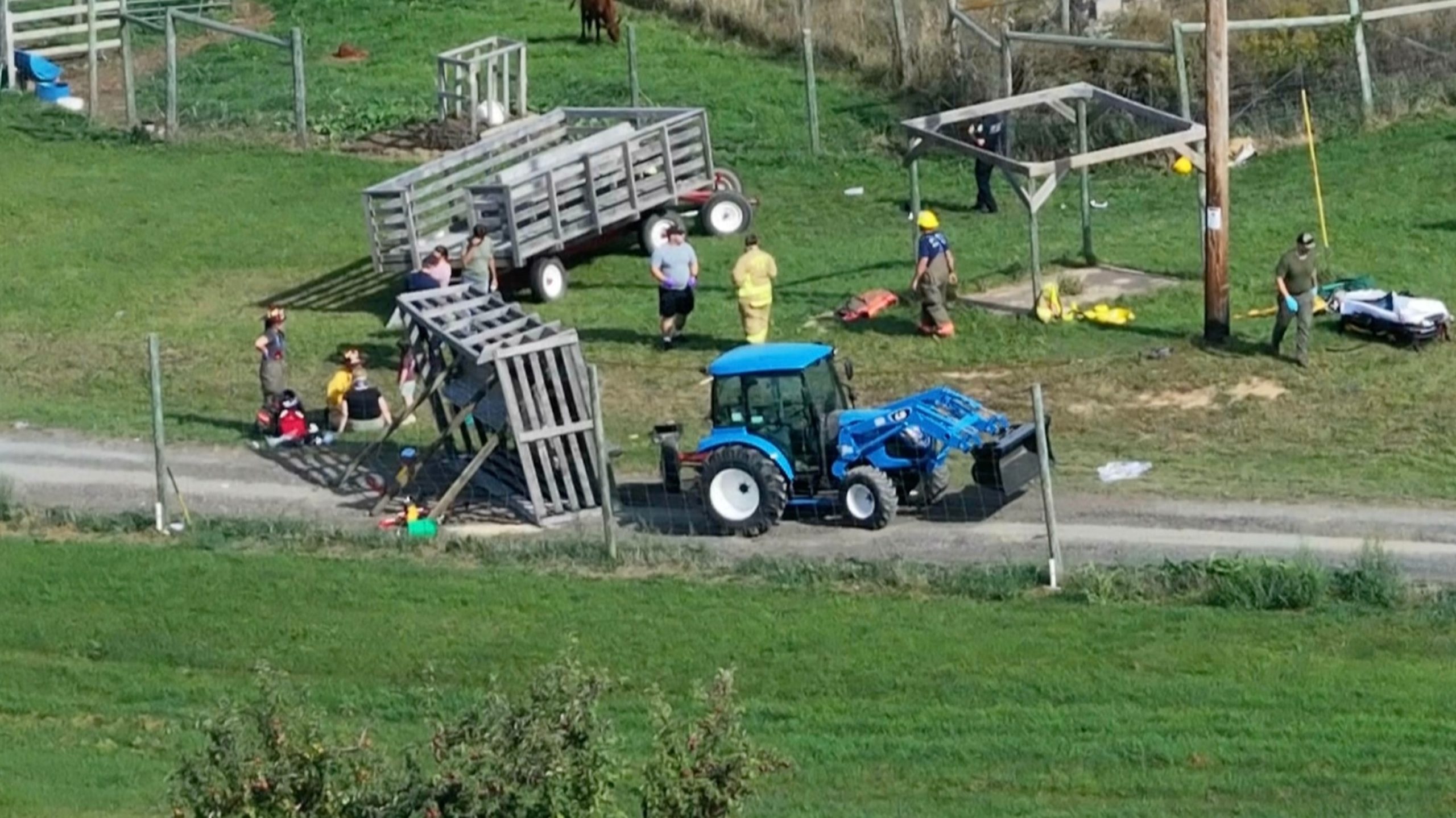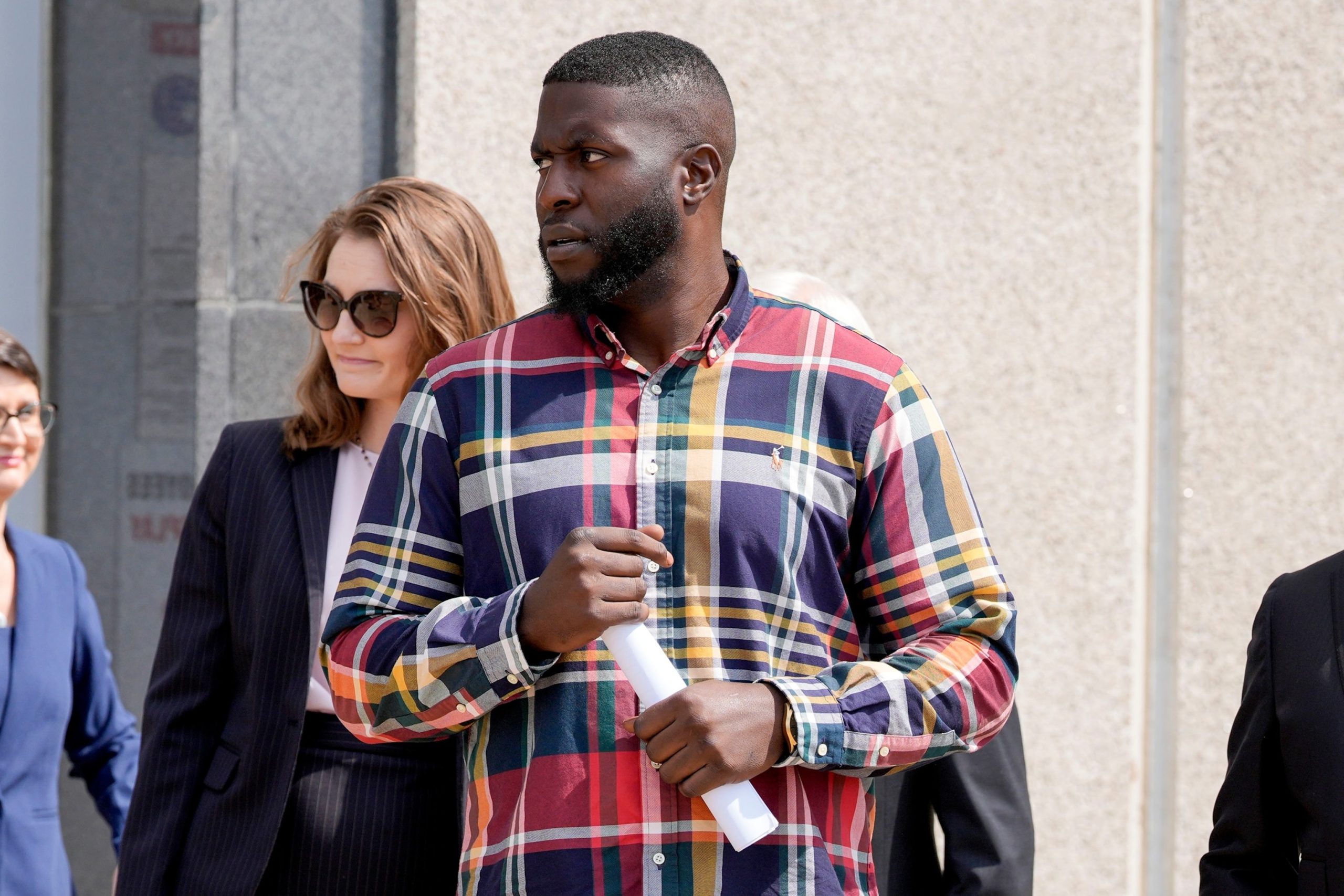
AUSTIN, Texas — A bipartisan group of Texas lawmakers petitioned Republican Gov. Greg Abbott and the state’s Board of Pardons and Paroles on Tuesday to stop the scheduled execution next month of a man convicted of killing his 2-year-old daughter in 2002, arguing the case was built on faulty scientific evidence.
The petition from 84 lawmakers from the 150-member Republican-controlled state House — as well as medical experts, death penalty attorneys, a former detective on the case, and bestselling novelist John Grisham — is a rare sign of widespread bipartisan support in Texas against a planned execution.
Robert Roberson is scheduled to die by lethal injection Oct. 17. Prosecutors said his daughter, Nikki Curtis, died from injuries caused by being violently shaken, also known as shaken baby syndrome.
“There is a strong majority, a bipartisan majority, of the Texas House that have serious doubts about Robert Roberson’s execution,” Rep. Joe Moody, a Democrat, said at a press conference at the state Capitol. “This is one of those issues that is life and death, and our political ideology doesn’t come into play here.”
Under Texas law, the governor can grant a one-time, 30-day reprieve from execution. Full clemency requires a recommendation from the majority of the Board of Pardons and Paroles, which the governor appoints.
Since taking office in 2015, Abbott has granted clemency in only one death row case when he commuted Thomas Whitaker’s death sentence to life in prison in 2018.
The Texas Board of Pardons and Paroles declined to comment. A spokesperson with the governor’s office did not immediately respond to an email seeking comment.
The clemency petition and Roberson’s supporters argue his conviction was based on inaccurate science and that experts have largely debunked that Curtis’ symptoms aligned with shaken baby syndrome.
“Nikki’s death … was not a crime — unless it is a crime for a parent to be unable to explain complex medical problems that even trained medical professionals failed to understand at the time,” the petition states. “We know that Nikki’s lungs were severely infected and straining for oxygen — for days or even weeks before her collapse.”
Roberson has maintained his innocence. In 2002, he took his daughter to the hospital after he said he woke up and found her unconscious and blue in the lips. Doctors at the time were suspicious of Roberson’s claim that Curtis had fallen off the bed while they were sleeping, and some testified at trial that her symptoms matched those of shaken baby syndrome.
Many medical professionals now believe the syndrome can be diagnosed too quickly before considering an infant’s medical history. Experts from Stanford University Medical Center, the University of Pennsylvania and Children’s Minnesota Hospital are a few of the professionals who signed on.
Roberson is autistic, and his attorneys claim that his demeanor was wrongfully used against him and that doctors failed to rule out other medical explanations for Curtis’ symptoms, such as pneumonia.
The Texas Court of Criminal Appeals previously halted his execution in 2016. But in 2023, the court allowed the case to again proceed, and a new execution date was set.
Prosecutors said the evidence against Roberson was still robust and that the science of shaken baby syndrome had not changed as much as the defense claimed.
Brian Wharton, a former chief of detectives in Palestine, Texas, who aided in Roberson’s prosecution, signed the petition and publicly called on the state to stop the execution.
“Knowing everything I know now, I am firmly convinced that Robert is innocent,” Wharton said.
___
Lathan is a corps member for the Associated Press/Report for America Statehouse News Initiative. Report for America is a nonprofit national service program that places journalists in local newsrooms to report on undercovered issues.
In a rare display of bipartisan unity, Texas lawmakers have come together in an effort to halt the execution of a man on death row. The case has garnered widespread attention and sparked a debate about the fairness of the criminal justice system in the state.
The man in question, who has been identified as John Doe, was convicted of a heinous crime several years ago and sentenced to death. However, new evidence has recently come to light that raises serious doubts about his guilt. In light of this new information, a group of lawmakers from both sides of the aisle have joined forces to push for a stay of execution and a thorough review of the case.
The bipartisan support for halting the execution of John Doe is significant for several reasons. First and foremost, it demonstrates that issues of justice and fairness transcend political divides. In a state known for its tough stance on crime and its high rate of executions, the fact that lawmakers from both parties are willing to come together to advocate for a fair and just outcome is a powerful statement.
Furthermore, the case has raised important questions about the reliability of the criminal justice system in Texas. The fact that new evidence has emerged that could potentially exonerate John Doe highlights the need for a more thorough and transparent review process in capital cases. By calling for a stay of execution and a closer examination of the evidence, lawmakers are sending a clear message that they take their responsibility to uphold justice seriously.
The bipartisan effort to halt the execution of John Doe has also sparked a broader conversation about the death penalty in Texas. While the state has long been known for its tough stance on capital punishment, there is growing recognition that the system is not infallible and that mistakes can and do occur. By coming together to advocate for a fair and just outcome in this case, lawmakers are signaling their commitment to ensuring that justice is served in all cases, regardless of the political implications.
In conclusion, the bipartisan support from Texas lawmakers in the effort to halt the execution of John Doe is a powerful reminder of the importance of upholding justice and fairness in the criminal justice system. By setting aside their political differences and coming together to advocate for a fair and just outcome, lawmakers are sending a clear message that they take their responsibility to uphold justice seriously. It is hoped that their efforts will lead to a more thorough review of the case and ultimately ensure that justice is served.


